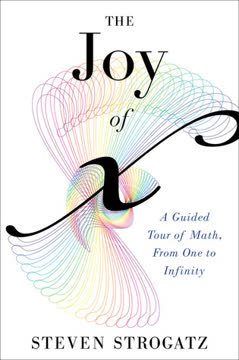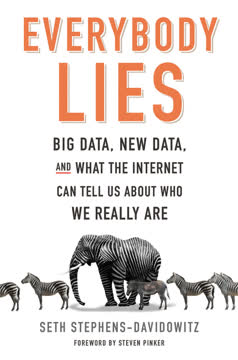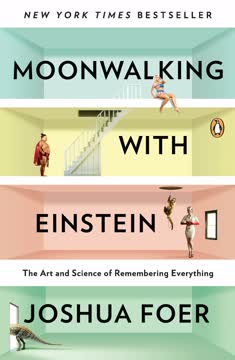Key Takeaways
1. Develop Your Comedic Voice and Persona
"Finding your persona is a trial-and-error process."
Authenticity is key. Your comedic voice should be an exaggerated version of yourself, not a fabricated character. Experiment with different styles and topics to find what resonates with you and your audience.
Highlight your unique perspective. Consider:
- Your background and experiences
- Your quirks and insecurities
- Your opinions on current events and societal issues
Develop a consistent "brand" of comedy that audiences can recognize and relate to. This may include your delivery style, choice of topics, or even your physical appearance on stage.
2. Master the Fundamentals of Joke Structure
"Jokes need to be concentrated. Audiences don't care about what really happened in your life. They want you to get to the point, and stories take too long to get there."
Learn the anatomy of a joke. The basic structure includes:
- Setup: Establish the context
- Premise: Present your unique perspective
- Act-out: Perform the situation
- Punchline: Deliver the unexpected twist
Practice writing jokes using this formula, focusing on brevity and impact. Aim to get to the funny part quickly, ideally within three lines.
Timing is crucial. Learn to:
- Pause for audience reactions
- Emphasize key words
- Build tension before the punchline
3. Write Authentic, Relatable Material
"All successful comedy writers started off their careers by finding a topic about themselves that is relatable and believable."
Mine your life for material. Keep a journal of:
- Personal experiences and observations
- Embarrassing moments
- Relationships and family dynamics
- Daily frustrations and pet peeves
Find universal themes. While your experiences are unique, the emotions and situations should be relatable to a wide audience. Focus on common human experiences like:
- Dating and relationships
- Work and career struggles
- Family dynamics
- Social awkwardness
Transform these personal stories into premises that highlight your unique perspective while touching on shared experiences.
4. Perform Regularly to Hone Your Craft
"Open mikes are comedy boot camps—the worse they are, the more seasoned you become."
Embrace every opportunity to perform. Seek out:
- Open mic nights
- Comedy clubs
- College campuses
- Corporate events
- Online platforms
Record and analyze your performances. After each set:
- Review audience reactions
- Identify strong and weak points
- Experiment with timing and delivery
- Refine and rework material
Remember that bombing is part of the process. Use these experiences to develop resilience and improve your material.
5. Create a Diverse Comedy Portfolio
"If you want to have a career as a comedy writer or performer, being funny isn't enough. You have to have a unique point of view."
Explore various comedy formats:
- Stand-up routines
- Sketch comedy
- Sitcom scripts
- Humor essays
- One-person shows
- Social media content
Develop multiple skill sets. In addition to writing and performing, consider:
- Improv techniques
- Character development
- Storytelling
- Physical comedy
- Voice acting
A diverse portfolio demonstrates versatility and increases your chances of success in the competitive comedy industry.
6. Network and Build Industry Relationships
"Sucking up to people will get you everywhere in this business—especially if it's authentic."
Attend industry events. Participate in:
- Comedy festivals
- Workshops and classes
- Open mic nights
- Industry showcases
Cultivate professional relationships. Connect with:
- Fellow comedians
- Agents and managers
- Club owners and bookers
- TV and film producers
- Comedy writers
Be genuine in your interactions and offer support to others in the community. Remember that comedy is a collaborative art form, and your network can provide opportunities, feedback, and support throughout your career.
7. Market Yourself Effectively
"The way to get noticed is to promote yourself."
Create a strong online presence:
- Professional website
- Active social media accounts
- YouTube channel for video content
- Podcast or blog to showcase your writing
Develop promotional materials:
- Professional headshots
- Demo reel or highlight video
- Press kit with bio and reviews
- Business cards with contact information
Seek media coverage. Pitch yourself to:
- Local newspapers and magazines
- Radio shows
- Podcasts
- Online comedy platforms
Be proactive in promoting your work and creating opportunities for exposure. Remember that in the early stages of your career, you are your own best advocate.
8. Embrace Failure and Learn from Mistakes
"Being successful in comedy is very different from being famous."
Reframe failure as a learning opportunity. After a poor performance:
- Analyze what went wrong
- Identify areas for improvement
- Adjust your material or delivery
Develop resilience. Understand that:
- Every successful comedian has bombed
- Improvement comes from persistence
- Setbacks are temporary
Use criticism constructively to refine your craft. Remember that success in comedy often comes from years of hard work and perseverance, not overnight fame.
9. Adapt Your Material for Different Formats
"Very often we see something in life and know it's funny but don't know what to do with it."
Learn to repurpose your material. A single premise can be adapted for:
- A stand-up bit
- A sketch comedy scene
- A sitcom episode plot
- A humorous essay
- Social media content
Tailor your content to the medium. Consider:
- Length and pacing requirements
- Visual vs. audio-only formats
- Audience demographics
- Content restrictions (e.g., language, topics)
Developing this skill allows you to maximize the value of your ideas and expand your reach across different comedy platforms.
10. Stay Current and Continuously Evolve
"Yesterday's hip is today's hack."
Keep your finger on the pulse of pop culture and current events:
- Read widely (news, magazines, social media)
- Watch contemporary comedy (stand-up specials, sitcoms, late-night shows)
- Engage with diverse audiences
Regularly update your material:
- Retire outdated references
- Incorporate new life experiences
- Address emerging social trends and issues
Experiment with new styles and techniques:
- Study emerging comedians
- Try different comedy formats
- Collaborate with other artists
Remember that the comedy landscape is constantly changing. To stay relevant, you must be willing to evolve your material and approach while staying true to your unique comedic voice.
</instructions>
Last updated:
FAQ
What's The Comedy Bible about?
- Comprehensive Comedy Guide: The Comedy Bible by Judy Carter is a detailed guide for aspiring comedians and writers, covering everything from stand-up to sitcom writing.
- Hands-On Workbook Format: It includes exercises that encourage active participation, helping readers develop their comedy skills through practical application.
- Insider Tips and Techniques: Carter shares her industry insights, teaching readers how to write jokes, pitch material, and negotiate contracts.
Why should I read The Comedy Bible?
- Expert Guidance: Judy Carter, a seasoned comedian and coach, offers valuable insights that can help you navigate the comedy landscape.
- Transformative Exercises: The book provides exercises to help you develop your unique comedic voice and style, building confidence and creativity.
- Monetizing Humor: It outlines various ways to turn your humor into a career, making it a comprehensive resource for aspiring comedians.
What are the key takeaways of The Comedy Bible?
- Finding Your Unique Voice: Authenticity is crucial in comedy, and Carter encourages exploring personal experiences for relatable material.
- Structure of Jokes: Understanding joke components like setup, punchline, and act-out is essential for effective comedy writing.
- Handling Hecklers: The book offers strategies for dealing with hecklers and maintaining audience engagement, emphasizing adaptability.
What are the best quotes from The Comedy Bible and what do they mean?
- "You are only as authentic as you allow yourself to be.": Highlights the importance of genuineness in comedy, which resonates with audiences.
- "Comedy is not for normal people.": Suggests that unique perspectives enhance comedic material, encouraging comedians to embrace their quirks.
- "If you want to be a comic, you have to be willing to take risks.": Emphasizes vulnerability and courage in comedy, as taking risks can lead to more profound material.
How does Judy Carter suggest finding authentic topics in The Comedy Bible?
- Reflect on Personal Experiences: Carter advises exploring your life, including relationships and challenges, for authentic material.
- Use Stream of Consciousness Writing: This technique helps uncover hidden topics and premises by allowing thoughts to flow freely.
- Reality Testing: Testing topics with others ensures they resonate, helping identify relatable material.
What is the structure of a joke according to The Comedy Bible?
- Setup and Punchline: A joke consists of a setup introducing the premise and a punchline delivering the humor with a twist.
- Act-Outs and Mixes: Performing jokes rather than just telling them enhances humor and audience engagement.
- Attitude: Each joke should have a clear attitude, guiding the audience's emotional response and shaping the premise effectively.
How can I handle hecklers effectively as suggested in The Comedy Bible?
- Stay Calm and Collected: Maintaining composure allows for effective responses and keeps the audience on your side.
- Use Humor to Defuse Tension: Responding with humor can engage the audience and showcase quick thinking.
- Signal for Help if Necessary: If a heckler is disruptive, it's okay to seek assistance to protect your performance.
What specific methods does Judy Carter recommend for generating comedy material?
- Mind Mapping: This technique allows for brainstorming ideas related to a topic, helping overcome creative blocks.
- Top Ten Lists: Creating lists encourages thinking of multiple angles on a topic, leading to richer comedic content.
- Act-Outs and Character Development: Bringing characters to life enhances the comedic impact of jokes.
How does The Comedy Bible address the business side of comedy?
- Self-Promotion Strategies: Carter emphasizes creating promotional materials like business cards and press releases to get noticed.
- Networking Importance: Building relationships with industry professionals can lead to more opportunities.
- Understanding Contracts: Knowing how to negotiate and what to expect in contracts is crucial for a successful career.
What are some common mistakes to avoid according to The Comedy Bible?
- Using Hack Material: Avoid relying on overused topics or clichés; originality is key to standing out.
- Overly Long Setups: Long setups can lose audience attention; keep jokes concise and to the point.
- Ignoring Feedback: Being open to feedback and constructive criticism is essential for growth as a comedian.
How can I develop my comedic voice using The Comedy Bible?
- Explore Personal Experiences: Drawing from your life can lead to unique material that resonates with audiences.
- Experiment with Different Styles: Trying various comedic styles helps refine your voice and make it distinct.
- Practice Regularly: Consistent practice and performance are crucial for discovering what works best for you.
What exercises does The Comedy Bible recommend for improving comedy writing?
- Daily Writing Prompts: Setting aside time daily to write about experiences or observations keeps creative juices flowing.
- Comedy Jam Sessions: Collaborating with a comedy buddy for brainstorming and feedback enhances the writing process.
- Recording and Reviewing Performances: Taping and reviewing performances provides insights into what works and what doesn’t.
Review Summary
The Comedy Bible receives mixed reviews, with an average rating of 3.84 out of 5. Many readers find it helpful for aspiring comedians, offering practical advice, exercises, and insights into comedy writing. Some praise its comprehensive approach and motivational tone. However, critics argue that parts of the book are outdated, contradictory, or too formulaic. Several reviewers note that while the book provides useful tools for beginners, experienced comedians may find limited value. Some readers appreciate the book's applicability to various forms of comedic writing beyond stand-up.
Similar Books










Download PDF
Download EPUB
.epub digital book format is ideal for reading ebooks on phones, tablets, and e-readers.






